We advance society by advancing freedom
At Proton, our social mission is at the heart of all we do. We believe in building an internet that works for people and not just for profit. But our work extends beyond our mission and service offering.
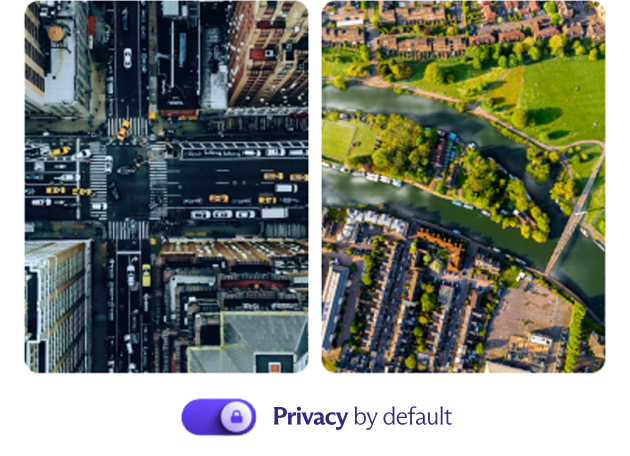
Proton provides free and open-source technology to millions of people and organizations to expand access to privacy, security, and freedom online.
Without privacy, there can be no freedom of speech, and without freedom of speech, there can be no democracy. This principle guides the non-profit Proton Foundation which supervises all of our activities globally.
Direct action for a better world
Each year, we partner with the Proton community to identify and fund important projects that are helping to build the kind of world we want to live in.

We have distributed over $5,000,000 in direct financial grants.
Some of the organizations we have supported are listed below.
NLnet is an independent nonprofit foundation that supports an open, secure internet. NLnet funds and advises independent developers and organizations working on shared digital infrastructure. It provides microgrants, expertise, and access to a global network, with all supported work released as free and open-source software.
WITNESS is a global human rights organization that helps people use video to document truth, defend rights, and hold power accountable in an era increasingly shaped by AI. WITNESS equips activists, journalists, and fact-checkers with the tools, skills, and strategies needed to verify video, counter manipulated media, and protect critical voices.
Hack Club is a global nonprofit that empowers young people to learn coding by building real things. Hack Club supports a worldwide network of 70,000+ students across 1,000+ clubs in more than 22 countries. It provides free tools, workshops, and a large peer-driven community where young makers collaborate, get help, and share what they build.
CHT is an independent nonprofit founded in 2018 by Tristan Harris, Aza Raskin, and Randima Fernando. It works to realign technology with human well-being by addressing growing societal risks posed by generative AI and other consequential technologies, and by developing interventions to reduce harm, inform public debate, and influence policy.
Transparency International is a global anti-corruption movement exposing corruption and holding power to account. Based in Berlin with 100+ national chapters, it combines research, advocacy, and campaigning to promote transparency, accountability, and stronger anti-corruption laws across public and private sectors.
Lighthouse Reports is a nonprofit investigative journalism organization producing cross-border investigations in the public interest. Based in Europe and working globally, it blends FOI-driven reporting with data journalism, open-source intelligence, and visual forensics, often focusing on human rights, corruption, environmental harm, and surveillance.
The Open Markets Institute is an independent nonprofit founded in 2017 that counters monopolization and strengthens democracy through competition policy. It uses research, journalism, and legal analysis to expose harms of concentrated corporate power, especially digital platform monopolies, and to advance policies for open, competitive markets.
The Insider is an independent investigative journalism outlet specializing in fact-checking, political analysis, and exposing state-backed corruption and disinformation. Founded in 2013, The Insider operates with an international editorial team and publishes in both Russian and English across websites, social platforms, and video channels.
Freedom House is a nonprofit, nonpartisan organization that works to create a world where all are free. Their work informs the world about threats to freedom, mobilizes global action, and supports democracy’s defenders. Freedom House’s annual Freedom on the Net report documents threats to encryption and privacy in 72 countries.
Free Press Unlimited is an international NGO based in Amsterdam dedicated to promoting press freedom and supporting independent journalism worldwide. The organization collaborates with over 300 media partners across more than 50 countries to ensure reliable information is accessible to everyone, especially in regions where press freedom is limited.
The Open Data Institute is a London-based nonprofit, co-founded in 2012 by the inventor of the Web, Sir Tim Berners-Lee, and artificial intelligence expert Sir Nigel Shadbolt. Its mission is to work with companies and governments to build an open, trustworthy data ecosystem where people can make better decisions using data and manage harmful impacts.
The Ada Lovelace Institute is an independent research institute based in London dedicated to ensuring that data and artificial intelligence work for people and society. The institute collaborates with organizations such as The Alan Turing Institute and others to address the ethical and societal implications of data and AI technologies.
The Tech Oversight Project is a US-based advocacy organization dedicated to holding major technology companies accountable for anti-competitive practices and societal harms. It engages with lawmakers and decision-makers to counter misleading narratives, expose detrimental actions by tech giants, and advocate for comprehensive antitrust legislation.
The Free Software Foundation Europe (FSFE) is a charity founded in 2001 that helps users control technology. Free Software gives everyone rights to use, study, adapt, and share software, supporting freedoms like speech, press, and privacy. FSFE promotes freedom, transparency, and self-determination for users and organizations.
Law for Change is a UK-based organization established in 2023, dedicated to supporting legal actions that amplify the voices of underrepresented individuals and communities with limited access to justice. By funding public interest cases, it aims to contribute to societal benefit and lasting social change.
Nothing2hide is a nonprofit established in 2017 providing capacity building and security assistance around the globe. They are dedicated to enhancing digital security for journalists, human rights activists, and citizens worldwide by providing technical solutions, training, and support to protect data and communications from threats.
OpenStreetMap is a collaborative project that creates a free, editable map of the world, built by a community of mappers who contribute and maintain data about roads, trails, cafés, railway stations, and much more. OSM has grown into a global initiative dedicated to encouraging the distribution of free geospatial data.
Ladybird is an independent, open source browser and web engine developed from scratch, driven by a web standards first approach. Unlike many browsers that build on top of existing web engines, Ladybird is built entirely anew, allowing users to choose a browser that aims to render the modern web with good performance, security and privacy.
Public Knowledge is a D.C.-based consumer advocacy group working at the intersection of copyright, telecommunications, and internet law that pushes for freedom of expression, net neutrality, online privacy, affordable broadband access, digital platform competition, and other policies that benefit the public.
Freedom of the Press Foundation is a nonprofit that advances public-interest journalism by developing encryption tools, documenting press attacks, training newsrooms on digital security, and advocating for the public's right to know. FPF advocates against surveillance/censorship and tracks U.S. press freedom violations via the U.S. Press Freedom Tracker.
Tactical Tech is an international NGO that engages with citizens and civil society organizations to explore and mitigate the impacts of technology on society. Based in Berlin, the organization designs experiences, events and educational resources that invite people to think about how technology influences their lives.
Bellingcat is an independent collective of researchers specializing in open-source intelligence and forensic investigation of war crimes, human rights abuses, and conflict, particularly related to Russia, Syria, and extremist groups. It uses publicly available data to verify facts and has gained global prominence for its high-profile investigations.
La Quadrature du Net promotes and defends fundamental freedoms in the digital world. LQDN is a Paris-based activist group that fights against censorship and surveillance, promoting a free, decentralized, and emancipatory internet through legal and political monitoring, lobbying, public awareness campaigns, and the development of practical tools.
Forbidden Stories is a network of journalists whose mission is to pursue the investigations of other reporters who have been murdered. By bringing to light critical information on topics ranging from environmental crimes, human rights violations, sending a clear message to those who seek to silence the press: Killing the journalist won’t kill the story.
Bits of Freedom is a Dutch foundation whose mission is to influence legislation and policy in the Netherlands and the EU. It focuses on the advancement of two rights: freedom of communication and privacy. The group researches new legislation and new technology and translates its insights into policy advice, campaigns, awareness-raising and legal action.
Tor is a nonprofit whose mission is to advance human rights and freedoms by creating and deploying free and open source anonymity and privacy technologies, supporting their unrestricted availability and use, and furthering their scientific and popular understanding. The group’s Tor Browser enables private and uncensored web browsing.
The Berlin-based Civil Liberties Union for Europe is a watchdog network with members in Brussels and across 20 EU countries that protects the human rights of everyone in the European Union. It runs advocacy and educational campaigns and legal work on issues such as media freedom, free speech, surveillance, privacy, and the misuse of AI.
MSF is an international, independent medical humanitarian organization founded in 1971 that provides emergency aid to people affected by armed conflict, epidemics, natural disasters, and exclusion from healthcare. Operating in over 70 countries, MSF delivers impartial, neutral care based solely on need.
Privacy International is a London-based registered charity that fights for the global right to privacy. PI investigates how governments and corporations use technology through investigations, litigation, and policy advocacy, demanding accountability and aiming to protect people from exploitation in the digital age.
The Electronic Privacy Information Center is a D.C.-based non-profit research organization working to protect privacy, freedom of expression, and democratic values in the information age. EPIC focuses on advocacy, AI policy, surveillance, and litigation to tip the scales of power on the internet in favor of the people who use it.
The Human Rights Foundation (HRF) is a nonpartisan, nonprofit organization that intends to promote and protect human rights internationally. Headquartered in New York City, HRF works to hold dictators accountable, support dissidents in closed societies, and organize the annual Oslo Freedom Forum to raise awareness about authoritarian regimes.
Access Now is an international non-profit organization that defends and extends the digital civil rights of users at risk worldwide. Headquartered in New York, it provides 24/7 technical support via its Digital Security Helpline, campaigns against internet shutdowns,, and hosts the annual RightsCon conference.
Fight for the Future is a nonprofit digital rights advocacy group founded in 2011, dedicated to ensuring technology empowers rather than oppresses. Operating remotely with a team of activists, technologists, and creatives, they launch high-profile campaigns against online censorship, surveillance, and more.
Women Who Code was a prominent international non-profit organization founded in 2011 to support women in technology careers, which announced its unexpected closure in April 2024 due to funding shortages. It provided networking, technical workshops, and over $3.5 million in scholarships to nearly 500,000 members worldwide.
Ranking Digital Rights is a research initiative that evaluates the policies and practices of the world’s most powerful tech and telecom companies regarding user privacy and freedom of expression. It ranks companies based on 58 indicators, providing a scorecard on how they handle user data and content moderation.
Qubes OS is a security-focused, free, and open-source Linux distribution for personal computers that allows you to securely compartmentalize your digital life. It secures systems by isolating applications into separate, compartmentalized virtual machines called "qubes." It is widely considered one of the most secure operating systems available.
GrapheneOS is a free and open-source, privacy and security focused, Android-based operating system for Google Pixel smartphones, tablets and foldable devices. It is developed by the GrapheneOS Foundation, a Canadian nonprofit corporation and it focuses on researching and improving the privacy and security of Android.
Tor is a nonprofit whose mission is to advance human rights and freedoms by creating and deploying free and open source anonymity and privacy technologies, supporting their unrestricted availability and use, and furthering their scientific and popular understanding. The group’s Tor Browser enables private and uncensored web browsing.
Reporters Without Borders is a Paris-based non-profit organization that defends freedom of information and protects journalists worldwide. It provides material, financial, and safety assistance to media personnel while monitoring censorship and violations of press freedom, including imprisonment and violence.
The Markup is a nonprofit, data-driven newsroom that investigates how powerful institutions use technology to impact society. Founded in 2020 by journalists, it focuses on actionable, evidence-based reporting on privacy, algorithms, and digital rights, publishing its underlying code and data. It was acquired by CalMatters in 2024.
NOYB (short for "None of Your Business") is a non-profit organization founded by activist Max Schrems to enforce digital privacy rights. Supported by over 5,000 members, noyb uses strategic litigation and advocacy to ensure companies comply with GDPR and ePrivacy regulations. It focuses on commercial privacy violations by major tech firms.
The Thirst Project is a nonprofit organization that dedicates 100% of the donations it receives to drilling wells in remote communities in Eswatini, India, Uganda, El Salvador, and Kenya. Since 2008, Thirst Project has completed over 3,000 projects in 13 countries, supplying over 400,000 people with clean water.
The European Digital Rights network comprises academics, advocates, researchers, and civil rights organizations that fight to protect all Europeans’ digital rights.
Tails is a portable operating system that expands the protection of the Tor network to your entire computer. You can download Tails onto a USB stick and then plug that USB into any computer and use it without leaving a trace, making Tails an essential anti-censorship and privacy tool for journalists and activists.
The International Federation of Journalists’ Safety Fund is an emergency safety net, providing financial assistance to journalists who face violence, persecution, illness, or exile due to their work from repressive regimes, militants, and cartels aiming to prevent them from reporting the truth.
350.org is a global grassroots environmental organization founded in 2008 by author Bill McKibben and university friends to combat the climate crisis. It focuses on dismantling the fossil fuel industry, opposing new infrastructure, and advocating for a just transition to renewable energy through grassroots organizing.
The World Wide Web Foundation is an international non-profit organization established in 2019 to fight for a web that is safe, empowering, and for everyone. It was founded by Tim Berners-Lee, a fellow CERN alumnus, inventor of the world wide web, and Proton Foundation board member since 2021.
NetBlocks is a London-based watchdog organization that monitors internet freedom, shutdowns, and cyber-attacks worldwide. Using web probes and network telemetry, it provides real-time, data-driven reports on digital rights, internet governance, and censorship, often cited by major media outlets and international organizations.
WireGuard® is a next-generation VPN protocol that promises to be simpler, faster, more stable, and potentially more secure than its predecessors, such as IPsec and OpenVPN. Founded in 2015, the project is open source and community supported, receiving funding from individuals, nonprofits, and tech companies.
The Reporters Without Borders Germany 2026 Berlin Fellowship is a 6-month, fully funded program for journalists from countries with restricted press freedom. It provides a safe space, specialized digital security training, and support for threatened media professionals. The package includes accommodation, a monthly stipend, and travel costs.
Charter’97 is a prominent independent Belarusian human rights and news website established in 1998 by journalist Oleg Bebenin. Known for sharp criticism of Alexander Lukashenko’s regime, the outlet moved to Poland in 2011 due to persecution and was officially blocked in Belarus in 2018, continuing to operate via VPNs.
European Digital Rights is a leading network of NGOs, experts, advocates, and academics working to defend and advance digital rights, such as privacy, freedom of expression, and non-discrimination, across Europe. It coordinates 40+ members and advocates to influence laws on surveillance, AI, platform regulation, and other core digital rights issues.
Digitale Gesellschaft (Société Numérique) is a Swiss nonprofit advocating for civil rights, consumer protection, and digital self-determination. It critiques surveillance tech, opposes risky e-health dossiers and platform regulations lacking teeth, and pushes for digital sovereignty via open-source public infrastructure.
NLnet is an independent nonprofit foundation that supports an open, secure internet. NLnet funds and advises independent developers and organizations working on shared digital infrastructure. It provides microgrants, expertise, and access to a global network, with all supported work released as free and open-source software.
WITNESS is a global human rights organization that helps people use video to document truth, defend rights, and hold power accountable in an era increasingly shaped by AI. WITNESS equips activists, journalists, and fact-checkers with the tools, skills, and strategies needed to verify video, counter manipulated media, and protect critical voices.
Hack Club is a global nonprofit that empowers young people to learn coding by building real things. Hack Club supports a worldwide network of 70,000+ students across 1,000+ clubs in more than 22 countries. It provides free tools, workshops, and a large peer-driven community where young makers collaborate, get help, and share what they build.
CHT is an independent nonprofit founded in 2018 by Tristan Harris, Aza Raskin, and Randima Fernando. It works to realign technology with human well-being by addressing growing societal risks posed by generative AI and other consequential technologies, and by developing interventions to reduce harm, inform public debate, and influence policy.
Transparency International is a global anti-corruption movement exposing corruption and holding power to account. Based in Berlin with 100+ national chapters, it combines research, advocacy, and campaigning to promote transparency, accountability, and stronger anti-corruption laws across public and private sectors.
Lighthouse Reports is a nonprofit investigative journalism organization producing cross-border investigations in the public interest. Based in Europe and working globally, it blends FOI-driven reporting with data journalism, open-source intelligence, and visual forensics, often focusing on human rights, corruption, environmental harm, and surveillance.
The Open Markets Institute is an independent nonprofit founded in 2017 that counters monopolization and strengthens democracy through competition policy. It uses research, journalism, and legal analysis to expose harms of concentrated corporate power, especially digital platform monopolies, and to advance policies for open, competitive markets.
The Insider is an independent investigative journalism outlet specializing in fact-checking, political analysis, and exposing state-backed corruption and disinformation. Founded in 2013, The Insider operates with an international editorial team and publishes in both Russian and English across websites, social platforms, and video channels.
Freedom House is a nonprofit, nonpartisan organization that works to create a world where all are free. Their work informs the world about threats to freedom, mobilizes global action, and supports democracy’s defenders. Freedom House’s annual Freedom on the Net report documents threats to encryption and privacy in 72 countries.
Free Press Unlimited is an international NGO based in Amsterdam dedicated to promoting press freedom and supporting independent journalism worldwide. The organization collaborates with over 300 media partners across more than 50 countries to ensure reliable information is accessible to everyone, especially in regions where press freedom is limited.
The Open Data Institute is a London-based nonprofit, co-founded in 2012 by the inventor of the Web, Sir Tim Berners-Lee, and artificial intelligence expert Sir Nigel Shadbolt. Its mission is to work with companies and governments to build an open, trustworthy data ecosystem where people can make better decisions using data and manage harmful impacts.
The Ada Lovelace Institute is an independent research institute based in London dedicated to ensuring that data and artificial intelligence work for people and society. The institute collaborates with organizations such as The Alan Turing Institute and others to address the ethical and societal implications of data and AI technologies.
The Tech Oversight Project is a US-based advocacy organization dedicated to holding major technology companies accountable for anti-competitive practices and societal harms. It engages with lawmakers and decision-makers to counter misleading narratives, expose detrimental actions by tech giants, and advocate for comprehensive antitrust legislation.
The Free Software Foundation Europe (FSFE) is a charity founded in 2001 that helps users control technology. Free Software gives everyone rights to use, study, adapt, and share software, supporting freedoms like speech, press, and privacy. FSFE promotes freedom, transparency, and self-determination for users and organizations.
Law for Change is a UK-based organization established in 2023, dedicated to supporting legal actions that amplify the voices of underrepresented individuals and communities with limited access to justice. By funding public interest cases, it aims to contribute to societal benefit and lasting social change.
Nothing2hide is a nonprofit established in 2017 providing capacity building and security assistance around the globe. They are dedicated to enhancing digital security for journalists, human rights activists, and citizens worldwide by providing technical solutions, training, and support to protect data and communications from threats.
OpenStreetMap is a collaborative project that creates a free, editable map of the world, built by a community of mappers who contribute and maintain data about roads, trails, cafés, railway stations, and much more. OSM has grown into a global initiative dedicated to encouraging the distribution of free geospatial data.
Ladybird is an independent, open source browser and web engine developed from scratch, driven by a web standards first approach. Unlike many browsers that build on top of existing web engines, Ladybird is built entirely anew, allowing users to choose a browser that aims to render the modern web with good performance, security and privacy.
Public Knowledge is a D.C.-based consumer advocacy group working at the intersection of copyright, telecommunications, and internet law that pushes for freedom of expression, net neutrality, online privacy, affordable broadband access, digital platform competition, and other policies that benefit the public.
Freedom of the Press Foundation is a nonprofit that advances public-interest journalism by developing encryption tools, documenting press attacks, training newsrooms on digital security, and advocating for the public's right to know. FPF advocates against surveillance/censorship and tracks U.S. press freedom violations via the U.S. Press Freedom Tracker.
Tactical Tech is an international NGO that engages with citizens and civil society organizations to explore and mitigate the impacts of technology on society. Based in Berlin, the organization designs experiences, events and educational resources that invite people to think about how technology influences their lives.
Bellingcat is an independent collective of researchers specializing in open-source intelligence and forensic investigation of war crimes, human rights abuses, and conflict, particularly related to Russia, Syria, and extremist groups. It uses publicly available data to verify facts and has gained global prominence for its high-profile investigations.
La Quadrature du Net promotes and defends fundamental freedoms in the digital world. LQDN is a Paris-based activist group that fights against censorship and surveillance, promoting a free, decentralized, and emancipatory internet through legal and political monitoring, lobbying, public awareness campaigns, and the development of practical tools.
Forbidden Stories is a network of journalists whose mission is to pursue the investigations of other reporters who have been murdered. By bringing to light critical information on topics ranging from environmental crimes, human rights violations, sending a clear message to those who seek to silence the press: Killing the journalist won’t kill the story.
Bits of Freedom is a Dutch foundation whose mission is to influence legislation and policy in the Netherlands and the EU. It focuses on the advancement of two rights: freedom of communication and privacy. The group researches new legislation and new technology and translates its insights into policy advice, campaigns, awareness-raising and legal action.
Tor is a nonprofit whose mission is to advance human rights and freedoms by creating and deploying free and open source anonymity and privacy technologies, supporting their unrestricted availability and use, and furthering their scientific and popular understanding. The group’s Tor Browser enables private and uncensored web browsing.
The Berlin-based Civil Liberties Union for Europe is a watchdog network with members in Brussels and across 20 EU countries that protects the human rights of everyone in the European Union. It runs advocacy and educational campaigns and legal work on issues such as media freedom, free speech, surveillance, privacy, and the misuse of AI.
MSF is an international, independent medical humanitarian organization founded in 1971 that provides emergency aid to people affected by armed conflict, epidemics, natural disasters, and exclusion from healthcare. Operating in over 70 countries, MSF delivers impartial, neutral care based solely on need.
Privacy International is a London-based registered charity that fights for the global right to privacy. PI investigates how governments and corporations use technology through investigations, litigation, and policy advocacy, demanding accountability and aiming to protect people from exploitation in the digital age.
The Electronic Privacy Information Center is a D.C.-based non-profit research organization working to protect privacy, freedom of expression, and democratic values in the information age. EPIC focuses on advocacy, AI policy, surveillance, and litigation to tip the scales of power on the internet in favor of the people who use it.
The Human Rights Foundation (HRF) is a nonpartisan, nonprofit organization that intends to promote and protect human rights internationally. Headquartered in New York City, HRF works to hold dictators accountable, support dissidents in closed societies, and organize the annual Oslo Freedom Forum to raise awareness about authoritarian regimes.
Access Now is an international non-profit organization that defends and extends the digital civil rights of users at risk worldwide. Headquartered in New York, it provides 24/7 technical support via its Digital Security Helpline, campaigns against internet shutdowns,, and hosts the annual RightsCon conference.
Fight for the Future is a nonprofit digital rights advocacy group founded in 2011, dedicated to ensuring technology empowers rather than oppresses. Operating remotely with a team of activists, technologists, and creatives, they launch high-profile campaigns against online censorship, surveillance, and more.
Women Who Code was a prominent international non-profit organization founded in 2011 to support women in technology careers, which announced its unexpected closure in April 2024 due to funding shortages. It provided networking, technical workshops, and over $3.5 million in scholarships to nearly 500,000 members worldwide.
Ranking Digital Rights is a research initiative that evaluates the policies and practices of the world’s most powerful tech and telecom companies regarding user privacy and freedom of expression. It ranks companies based on 58 indicators, providing a scorecard on how they handle user data and content moderation.
Qubes OS is a security-focused, free, and open-source Linux distribution for personal computers that allows you to securely compartmentalize your digital life. It secures systems by isolating applications into separate, compartmentalized virtual machines called "qubes." It is widely considered one of the most secure operating systems available.
GrapheneOS is a free and open-source, privacy and security focused, Android-based operating system for Google Pixel smartphones, tablets and foldable devices. It is developed by the GrapheneOS Foundation, a Canadian nonprofit corporation and it focuses on researching and improving the privacy and security of Android.
Tor is a nonprofit whose mission is to advance human rights and freedoms by creating and deploying free and open source anonymity and privacy technologies, supporting their unrestricted availability and use, and furthering their scientific and popular understanding. The group’s Tor Browser enables private and uncensored web browsing.
Reporters Without Borders is a Paris-based non-profit organization that defends freedom of information and protects journalists worldwide. It provides material, financial, and safety assistance to media personnel while monitoring censorship and violations of press freedom, including imprisonment and violence.
The Markup is a nonprofit, data-driven newsroom that investigates how powerful institutions use technology to impact society. Founded in 2020 by journalists, it focuses on actionable, evidence-based reporting on privacy, algorithms, and digital rights, publishing its underlying code and data. It was acquired by CalMatters in 2024.
NOYB (short for "None of Your Business") is a non-profit organization founded by activist Max Schrems to enforce digital privacy rights. Supported by over 5,000 members, noyb uses strategic litigation and advocacy to ensure companies comply with GDPR and ePrivacy regulations. It focuses on commercial privacy violations by major tech firms.
The Thirst Project is a nonprofit organization that dedicates 100% of the donations it receives to drilling wells in remote communities in Eswatini, India, Uganda, El Salvador, and Kenya. Since 2008, Thirst Project has completed over 3,000 projects in 13 countries, supplying over 400,000 people with clean water.
The European Digital Rights network comprises academics, advocates, researchers, and civil rights organizations that fight to protect all Europeans’ digital rights.
Tails is a portable operating system that expands the protection of the Tor network to your entire computer. You can download Tails onto a USB stick and then plug that USB into any computer and use it without leaving a trace, making Tails an essential anti-censorship and privacy tool for journalists and activists.
The International Federation of Journalists’ Safety Fund is an emergency safety net, providing financial assistance to journalists who face violence, persecution, illness, or exile due to their work from repressive regimes, militants, and cartels aiming to prevent them from reporting the truth.
350.org is a global grassroots environmental organization founded in 2008 by author Bill McKibben and university friends to combat the climate crisis. It focuses on dismantling the fossil fuel industry, opposing new infrastructure, and advocating for a just transition to renewable energy through grassroots organizing.
The World Wide Web Foundation is an international non-profit organization established in 2019 to fight for a web that is safe, empowering, and for everyone. It was founded by Tim Berners-Lee, a fellow CERN alumnus, inventor of the world wide web, and Proton Foundation board member since 2021.
NetBlocks is a London-based watchdog organization that monitors internet freedom, shutdowns, and cyber-attacks worldwide. Using web probes and network telemetry, it provides real-time, data-driven reports on digital rights, internet governance, and censorship, often cited by major media outlets and international organizations.
WireGuard® is a next-generation VPN protocol that promises to be simpler, faster, more stable, and potentially more secure than its predecessors, such as IPsec and OpenVPN. Founded in 2015, the project is open source and community supported, receiving funding from individuals, nonprofits, and tech companies.
The Reporters Without Borders Germany 2026 Berlin Fellowship is a 6-month, fully funded program for journalists from countries with restricted press freedom. It provides a safe space, specialized digital security training, and support for threatened media professionals. The package includes accommodation, a monthly stipend, and travel costs.
Charter’97 is a prominent independent Belarusian human rights and news website established in 1998 by journalist Oleg Bebenin. Known for sharp criticism of Alexander Lukashenko’s regime, the outlet moved to Poland in 2011 due to persecution and was officially blocked in Belarus in 2018, continuing to operate via VPNs.
Community spotlight
Violence, intimidation, and exile for the last independent news outlet in Belarus
In 2018 we financed Charter’97, the most popular independent news outlet in Belarus. Editor-in-chief (and Proton user) Natalya Radina has been on the front lines of Belarus's fight for freedom.

For journalists working in war zones or under repressive governments, digital security and privacy can be the difference between life and death
In 2019, we supported Reporters Without Borders’ digital security training program for journalists in the field. Together, we funded scholarships for journalists from conflict zones and repressive regimes. Reporters Without Borders uses Proton Mail for secure communications.

Defending freedom through technology
Proton powers newsrooms and human rights organizations around the world.
In addition to securing the data and communications of some of the world's largest international organizations, we also protect thousands of individual journalists and activists in the field.
Keeping your contacts safe
After working with journalists in the field, we recognized their need for a better way to protect their sources.
As a result, we developed the world’s first end-to-end encrypted contacts manager.
Preventing advanced attacks
Powerful adversaries, such as governments, have sophisticated tools for stealing data or breaking into devices.
Proton Mail's advanced features like Address Verification offer protection against encryption key tampering, while technologies like AppKey Protection System help keep data secure even if a device is physically stolen.
Defending against censorship
Services like Proton VPN help provide free and uncensored internet to millions of people living under authoritarian regimes worldwide.
Whether it’s Belarus, Russia, Turkey, Iran, or countless other places around the world, we open the internet, help shed light on the truth, and provide freedom during the darkest times.
Free and open-source software
We support tens of millions of free Proton accounts in order to provide secure internet services to all, irrespective of one’s ability to pay.
Our code and software libraries are open source and freely available, powering thousands of apps around the world that help defend freedom. Simply put, we believe that privacy is a fundamental human right for all.
Our commitment to protecting data under the most challenging circumstances has directly led to innovations that benefit all Proton users
Standing with our community no matter what
During the 2019 pro-democracy protests in Hong Kong, many tech companies, including Apple, turned their backs on the demonstrators in order to preserve access to the Chinese market. Proton Mail stepped in and provided free encrypted email services to activists working on the ground.
Amplifying the voice of activists
Former Hong Kong legislator and Proton user Nathan Law describes how freedom and privacy are under attack in Hong Kong.
In 2020, with the help of the Proton community, we raised $100,000 for humanitarian relief for Hong Kong activists who were violently suppressed.
Defending internet access around the world
We utilize our resources and technology to defend an open and uncensored internet.
In 2022, our work was featured on a front page New York Times article, highlighting the challenges and efforts we go through to counteract government censorship, especially in countries like Russia, and ensure our users are still able to access and share information online.
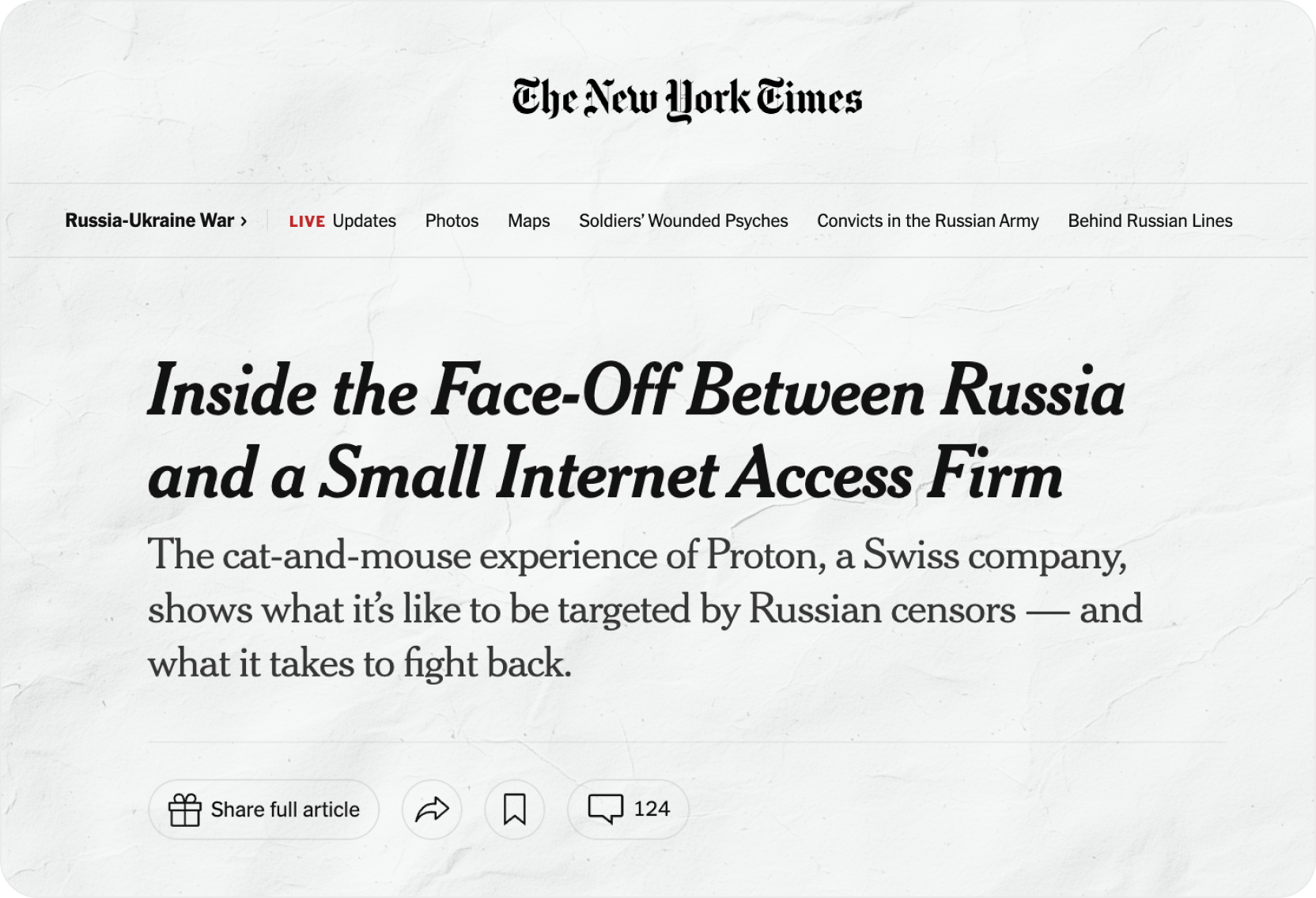
Documenting the fight against online censorship
As governments restrict internet access and stifle freedom of speech, VPNs have become essential tools for people to combat internet censorship.
Starting in 2021, we begun documenting all significant spikes in Proton VPN(new window) usage and their connection to major geopolitical events around the world as part of the Proton VPN Observatory project.
Advocating for privacy worldwide
Access to privacy often depends upon where you live. At Proton, we are committed to defending and promoting the right to privacy around the world.
Policy advocacy
Through our policy, government affairs and legal teams, we provide testimony and thought leadership to advance regulatory and legislative solutions that protect the Internet and democracy.
We actively participate in policy and regulatory discussions in different countries across the globe.
For example, we contribute to the European and US legislative efforts to promote competition, innovation and secure technologies such as end-to-end encryption which is critical both for privacy and cybersecurity.
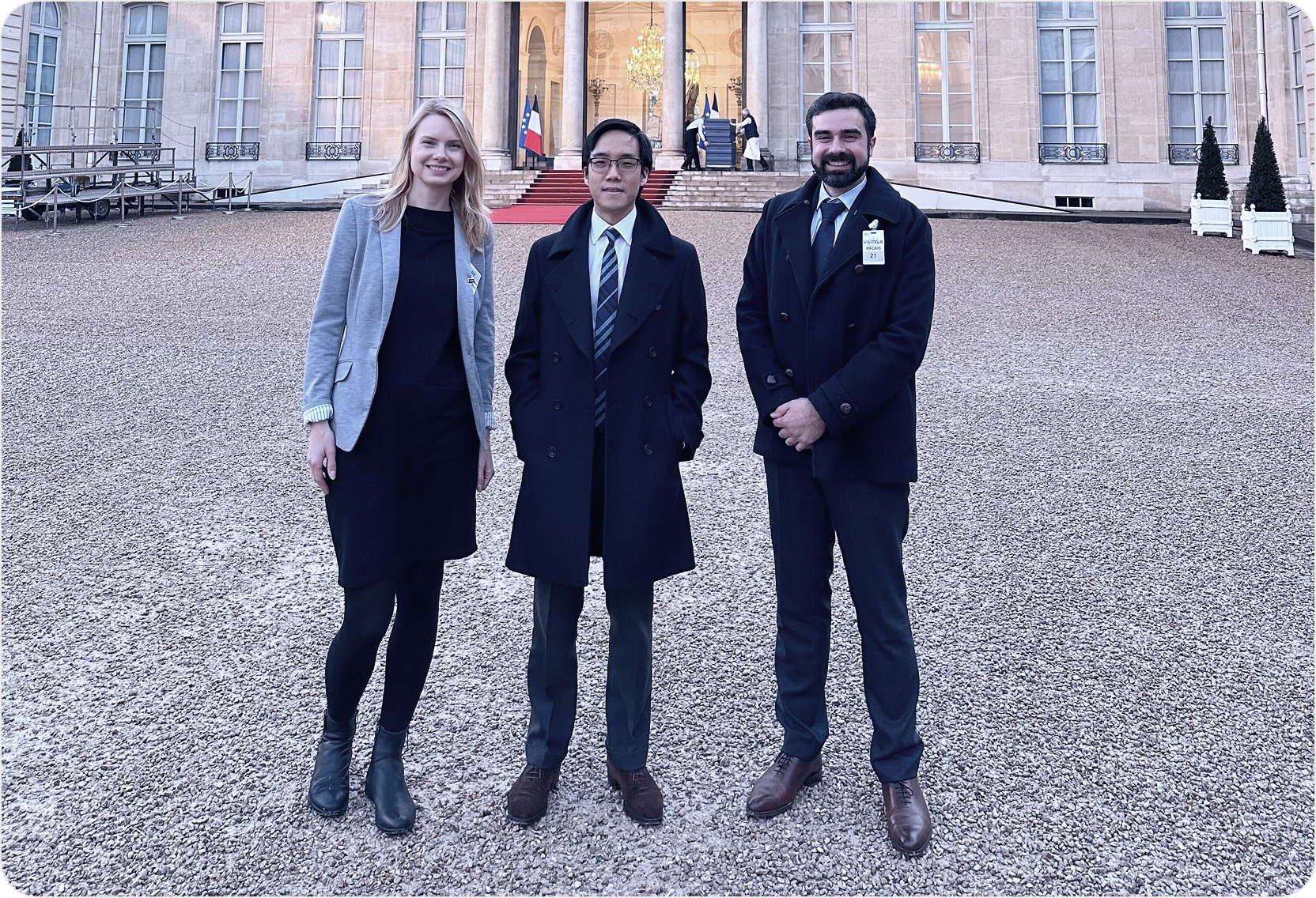
Advocating for a fairer internet
Proton is one of the founders and the driving force behind launching the Coalition for Competitive Digital Markets (CDM). The coalition represents 50+ companies from 16 countries as well as the European DIGITAL SME Alliance, a business association made of more than 45,000 digital SMEs.
We are also a founder of the Coalition for App Fairness(new window).
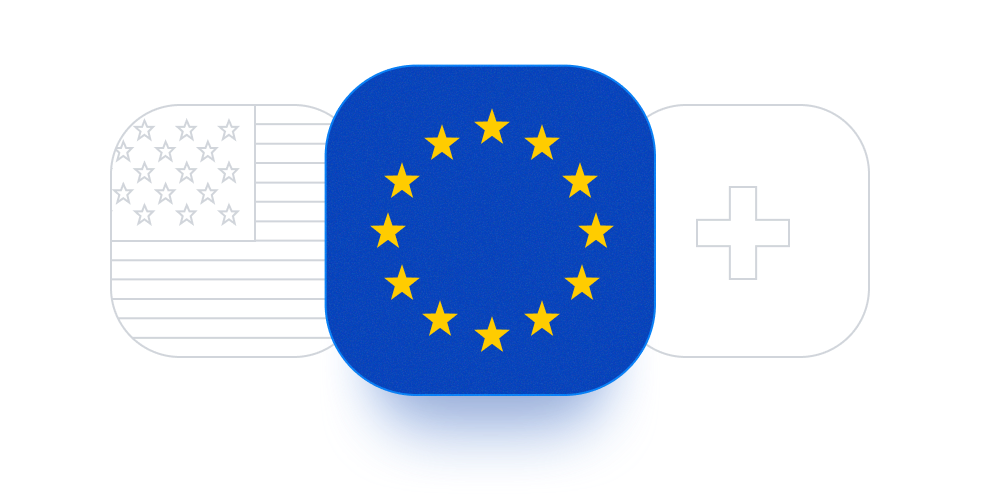
Engaging with Swiss policymakers
Proton participates in regulatory procedures and fights the application of overreaching regulations in Switzerland.
In 2021, we won an important victory at the Swiss Federal Administrative Court which confirmed that email services cannot be considered telecommunications providers, and consequently are not subject to the data retention requirements of telcos.
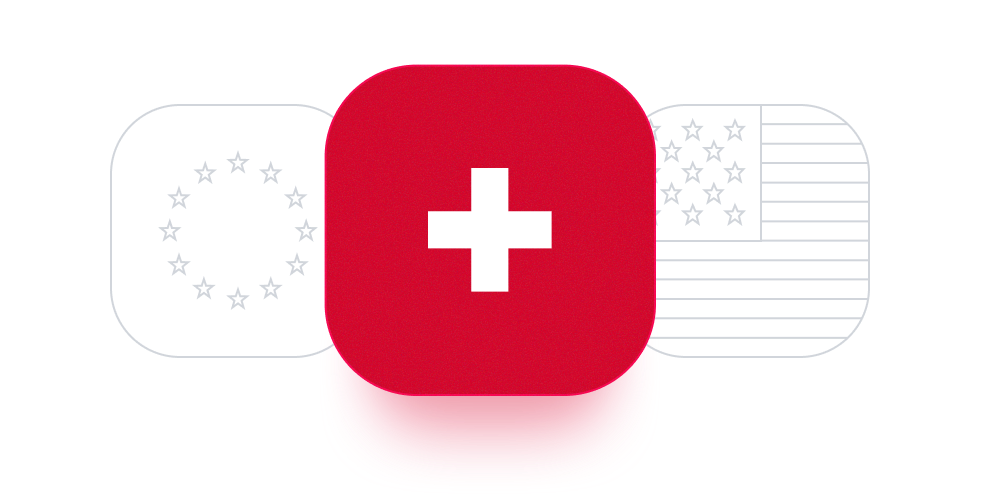
Holding Big Tech accountable
Proton engages regularly with US lawmakers and members of Congress on tech policy. We were featured heavily in the first antitrust report of the US Congress and the recent NTIA’s report on competition in the mobile application ecosystem.
Proton has also been an active supporter of the UK’s regulatory and legislative efforts to make the Internet and the mobile ecosystems more open and fair.
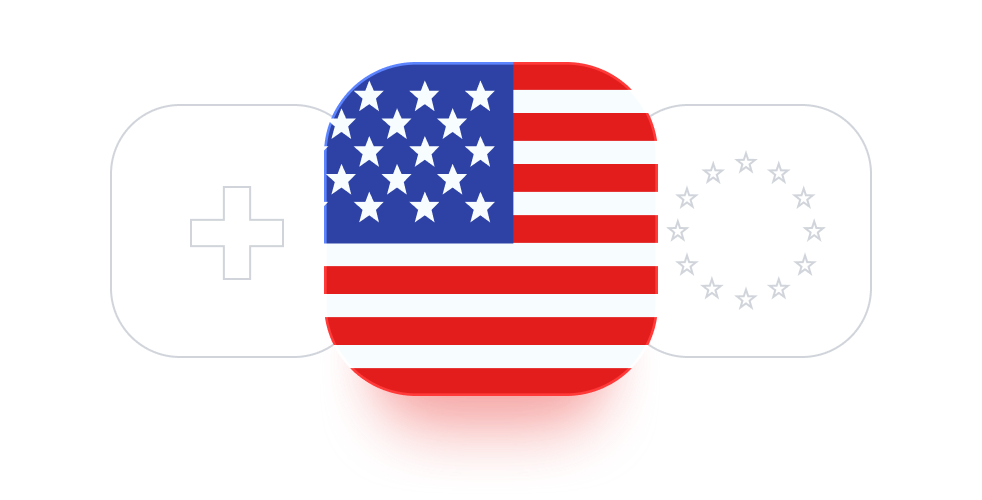
Education and training
We believe that knowledge is power. Whether it's publishing articles, sharing knowledge through the Proton community, or holding training sessions, we work continually to empower individuals and businesses worldwide. Some examples of our work in this area include:
Email encryption: A helmet for cyberspace
At the Second Asian Investigative Journalism Conference in Kathmandu, Nepal, we organized a training session to educate investigative journalists on how to properly use email encryption to protect their communication privacy while working under repressive governments.
GDPR.EU: The definitive GDPR guide
With the support of the Horizon 2020 Framework Programme of the European Union, Proton is the publisher and maintainer of GDPR.EU, the definitive guide to GDPR compliance that has become an invaluable tool for businesses large and small.
Take action
We can’t accomplish our mission without you. There are many ways to get involved with Proton.